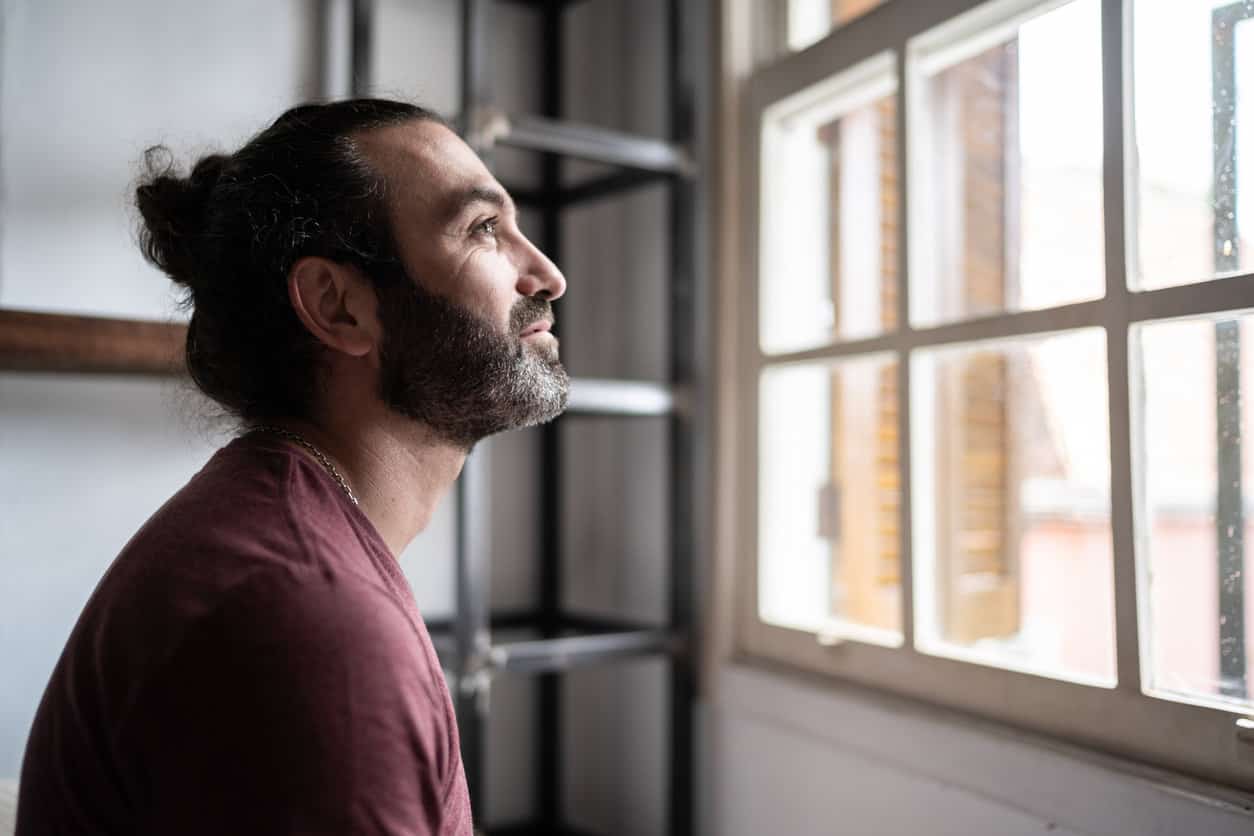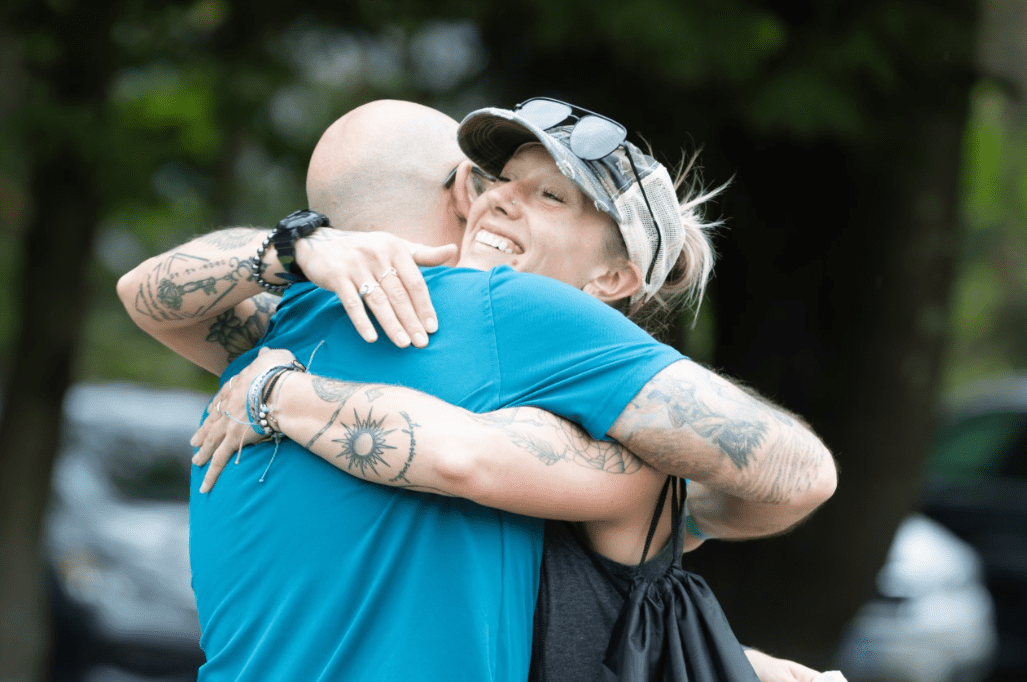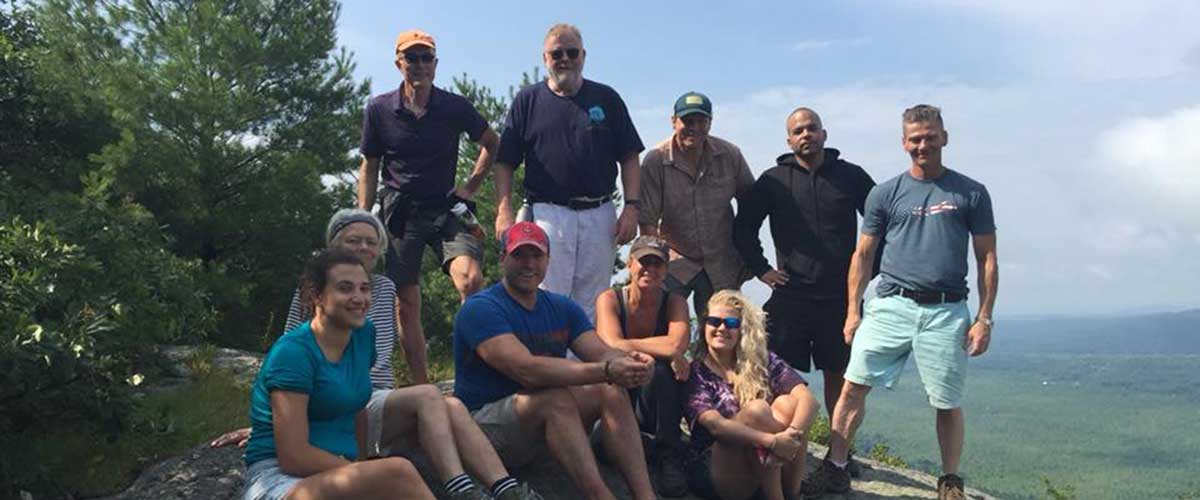Let’s face it. I’m a crystal meth addict. Before I got sober, there was nothing about meditation that appealed to me. I thought that meditation belonged to the monks and the hippies. Even though I look like a reincarnated Tibetan monk and like to burn incense, I wasn’t interested.
But when I got sober, I noticed that my drug use was covering up something else – anxiousness, depression, and nervousness – and those things were now bubbling to the surface. I was experiencing all these feelings without my drug of choice. Now how was I going to manage these feelings?
Meditation has taught me that I was living in my head too much. When I get lost in thought, my body reacts as if the events in my head are actually happening to me. My body doesn’t know whether I’m imagining a situation or actually experiencing it. When I think too much about my future, I get anxious. When I think too much about my past, I get depressed. Only when I am fully present can I find peace.
Meditation is about absorbing the self fully into the present moment without judging it, clinging to it, or pushing it away. It is objectively surrendering to the reality of the moment. Meditation is accepting what is and not wanting it to be different. When the moment was unpleasant, I used to pick up my drug of choice to make it more tolerable. When the moment was pleasant (usually caused by the use of drugs), I did everything I could to sustain it. Addiction is the complete opposite of accepting the moment.
Myths About Meditation
“I can’t meditate because my thoughts race too much.”
This excuse is like saying, “I don’t go to the gym because I’m out of shape.” Meditation is precisely designed for people with racing minds. The mind will wander. It will sometimes race. The first step in meditation is to realize that you’re thinking and change your relationship with your thoughts. Instead of getting lost in the story of your thoughts, try observing them. Pretend that you’re a concierge at a hotel, watching guests arrive. You watch them enter the lobby doors, cross in front of you, go to the bank of elevators, and disappear into the elevator. You don’t follow them all the way to their rooms. Just like watching guests, watch your thoughts as they come and go.
“I don’t have time to meditate.”
Do you have time to watch Netflix and wander endlessly on Facebook? Then you have time for meditation. Meditation will actually reward you by increasing your focus and attention span, giving you more time to complete your daily tasks. So instead of getting distracted by your phone and Facebook notifications, meditation will help you stay present for tasks so that you can complete them faster and more efficiently. A Buddhist saying recommends that everyone meditate for 30 minutes a day, but if you don’t have the time, meditate for 60 minutes.
Common Questions About Meditation
How can I get started meditating?
I would start by using a guided meditation app like HeadSpace or InsightTimer. You don’t need to know how to meditate to use these apps. You just have to listen and follow instructions.
Set aside time to silently listen every day, even if it’s just for five minutes. Then increase this time, little by little. You’ll get better results if you practice for short periods every day rather than for long periods with skipped days in between.
Read “On Awakening” (page 86) in the Big Book. EVERY. DAY.
How do I know that meditation is working?
First, do your best not to judge your practice. Some days, your sessions will seem great – high levels of concentration, a balanced mind – and other days, they will suck. This is guaranteed! Remember, the practice of mindfulness happens during meditation, but the results are found in everyday life.
You might not even notice when meditation is working. Others will notice a change in you before you do. They’ll find that you’re more agreeable and flexible. Things that used to trigger you will no longer do so. You’ll be less reactionary and more responsive. You’ll be more fully present for conversations and activities, and appreciate your life more.
A man once asked a wise monk, “What have you gained from meditation?” The monk replied, “Nothing. However, let me tell you what I lost: anger, anxiety, depression, insecurity, fear of old age, and death.”
If you or a loved one is struggling with addiction, Mountainside can help.
Click here or call (888) 833-4676 to speak with one of our addiction treatment experts.

 By
By 







